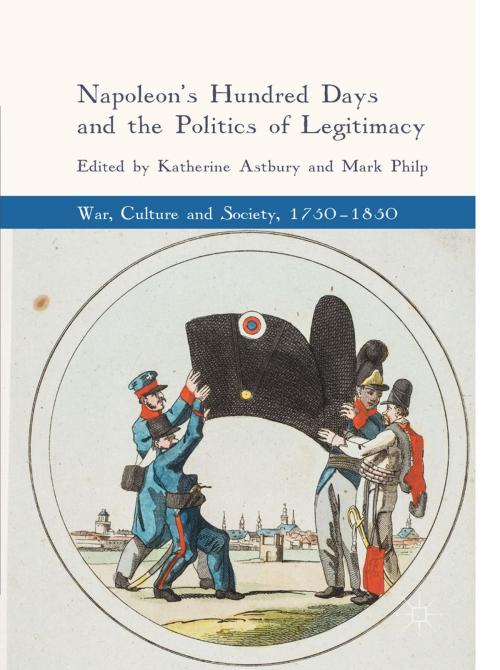Napoleon's Hundred Days and the Politics of Legitimacy
Nonfiction, History, France, European General| Author: | ISBN: | 9783319702087 | |
| Publisher: | Springer International Publishing | Publication: | February 12, 2018 |
| Imprint: | Palgrave Macmillan | Language: | English |
| Author: | |
| ISBN: | 9783319702087 |
| Publisher: | Springer International Publishing |
| Publication: | February 12, 2018 |
| Imprint: | Palgrave Macmillan |
| Language: | English |
This book examines the politics of legitimacy as they played out across Europe in response to Napoleon’s dramatic return to power in France after his exile to Elba in 1814. Napoleon had to re-establish his claim to power with initially minimal military resources. Moreover, as the rest of Europe united against him, he had to marshal popular support for his new regime, while simultaneously demanding men and money to back what became an increasingly inevitable military campaign. The initial return – known as ‘the flight of the eagle’ – gradually turned into a dogged attempt to bolster support using a range of mechanisms, including constitutional amendments, elections, and public ceremonies. At the same time, his opponents had to marshal their resources to challenge his return, relying on populations already war-weary and resentful of the costs they had had to bear. The contributors to this volume explore how, for both sides, cultural politics became central in supporting or challenging the legitimacy of these political orders in the path to Waterloo.
This book examines the politics of legitimacy as they played out across Europe in response to Napoleon’s dramatic return to power in France after his exile to Elba in 1814. Napoleon had to re-establish his claim to power with initially minimal military resources. Moreover, as the rest of Europe united against him, he had to marshal popular support for his new regime, while simultaneously demanding men and money to back what became an increasingly inevitable military campaign. The initial return – known as ‘the flight of the eagle’ – gradually turned into a dogged attempt to bolster support using a range of mechanisms, including constitutional amendments, elections, and public ceremonies. At the same time, his opponents had to marshal their resources to challenge his return, relying on populations already war-weary and resentful of the costs they had had to bear. The contributors to this volume explore how, for both sides, cultural politics became central in supporting or challenging the legitimacy of these political orders in the path to Waterloo.















